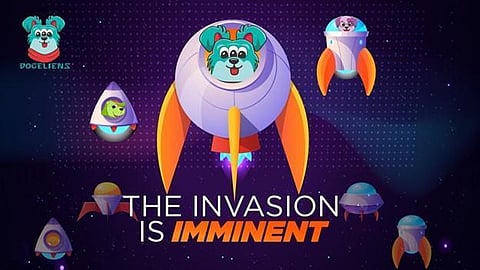

Litecoin was launched through an open-source client on GitHub in 2011, and the resident network was released a few days later. LTC was created as a faster, safer, and cheaper alternative at the time when Bitcoin was the only notable cryptocurrency. Naturally, Litecoin is based on Bitcoin's protocol, although there are variations in their infrastructure.
For example, LTC's hard cap, hashing algorithm, and block transaction window are distinguishable from its predecessor. Litecoin's block time is just two and a half minutes; combined with low fees, the platform is ideal for micro-transactions and point-of-sale payments.
The timing of Litecoin's emergence was critical because users were becoming accustomed to the benefits provided by Bitcoin, and there was a demand for more platforms. The advent of Litecoin was met with widespread acceptance from merchants. For most of its lifespan, LTC has ranked inside or near the top ten tokens in the market. LTC was the brainchild of Charlie Lee, a former employee at Google.
Lee imagined Litecoin as a lighter version of Bitcoin, hence the name. Since Litecoin is a legacy token, Charlie Lee is renowned in the cryptocurrency world as an innovator and early adopter of the technology. As it stands, Litecoin is accepted by more than two thousand merchants and stores worldwide.
Stellar was developed in 2014 and launched in 2015 as a peer-to-peer (P2P) decentralized platform. Created by Stellar Development Foundation (Stellar.org), the project hopes to connect global financial systems where institutions and payment processors can interact quickly and securely. Token holders can create, transfer and trade numerous cryptocurrencies on Stellar. The native token is XLM or Lumens. XLM serves as the intermediate currency for all activity on the platform and is used to pay transaction fees.
Generally, the protocol transforms money into Lumens before converting it into the requested currency. Moreover, Stellar employs distributed ledger technology, an open-source initiative that is owned and disseminated by community members. XLM overcomes major concerns like high fees and cumbersome procedures and provides a high level of security. Token holders must retain at least one token, so their status remains active on the platform.
The cryptocurrency market is home to noteworthy meme tokens like Dogecoin and Shiba Inu. The next addition to the dog family and meme cryptocurrency category is Dogeliens Token (DOGET). The makers of DOGET harbor ambitions to make their project the number one dog-based token on the market.
Dogeliens Token will include a democratic voting system. In other words, token holders will have governance rights, allowing them to either accept or decline changes to the protocol. The platform consists of a charity wallet, and users can vote to decide which charity is the beneficiary of weekly donations.
The process of purchasing Dogeliens Token is divided into a few steps. Users must create a wallet before funding it with Binance Smart Chain. The third step is to access PancakeSwap and trade DOGET for BSC.
If you become an early adopter and buy DOGET during stage one of the presale, you'll receive a 10% bonus. If you can muster a thousand dollars, the bonus will augment to 18%. In addition, if you buy Dogeliens Token within ten minutes, you'll be eligible for a 45% reward.
For more information about Dogeliens (DOGET), please visit the following links:
Presale: https://ufo.dogeliens.io
Website: http://dogeliens.io/
Telegram: https://t.me/DogeliensOfficial
Join our WhatsApp Channel to get the latest news, exclusives and videos on WhatsApp
_____________
Disclaimer: Analytics Insight does not provide financial advice or guidance on cryptocurrencies and stocks. Also note that the cryptocurrencies mentioned/listed on the website could potentially be scams, i.e. designed to induce you to invest financial resources that may be lost forever and not be recoverable once investments are made. This article is provided for informational purposes and does not constitute investment advice. You are responsible for conducting your own research (DYOR) before making any investments. Read more about the financial risks involved here.
